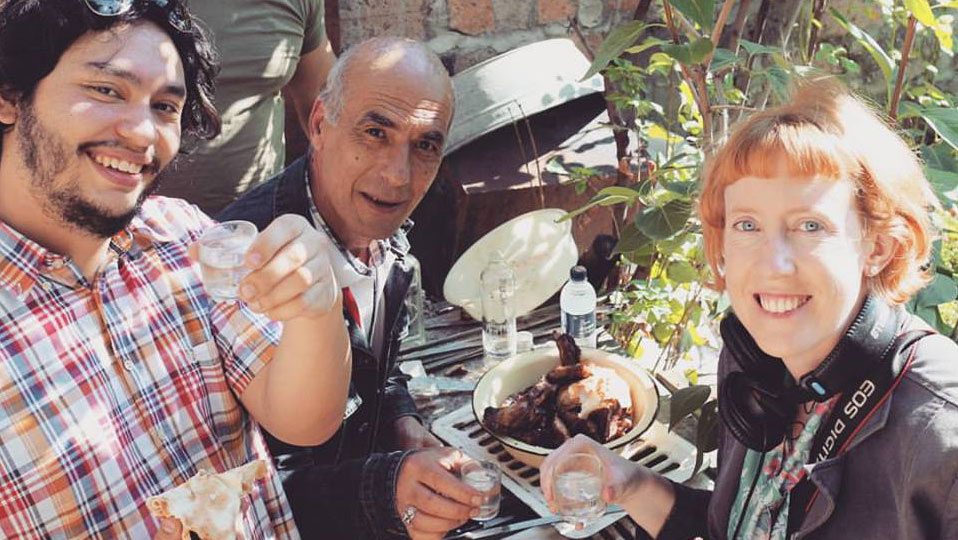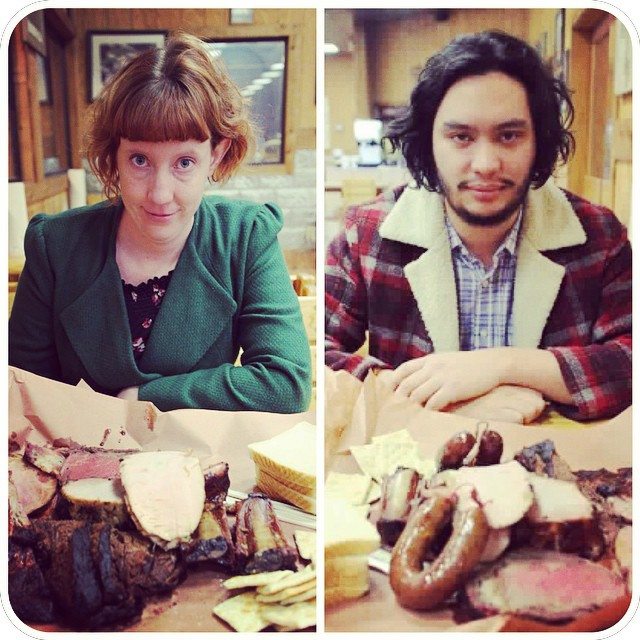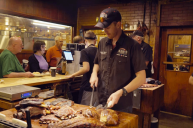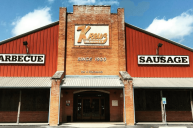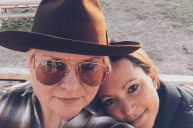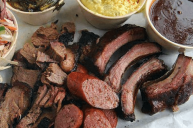If you feel passionately about barbecue, get settled in. Barbecue premieres at SXSW Film Festival 2017 and before the big showing, I had the honor of interviewing the creators, Matthew Salleh and Rose Tucker, on their experiences while filming. The documentary captures the heart of barbecue, and community, in 12 countries around the world. Armenia, Australia, Japan, the Syria/Jordan border, Mexico, Mongolia, New Zealand, Philippines, South Africa, Sweden, the U.S. (Texas), and Uruguay are all featured.
From settling into communities over vodka or cognac to the experience of realizing just how large the project was, the filmmakers' answers provide incredible insight to what it means to search for the heart of barbecue around the world. Here's a teaser of the documentary, followed by the interview.
Editor's Note: Rose Tucker is signified by RT; Matthew Salleh is signified by MS.
The start of the Barbecue project is linked to two Texas Hill Country towns in particular, Lockhart and Taylor. What did you both happen across there, other than the brisket itself, that inspired you to begin this larger project?
MS: A few years ago we were on a road trip through Texas when we passed through Taylor and Lockhart. We always carry a camera kit - just in case - and started talking to some of the legendary pitmasters of the area.
The barbecue we encountered was very different to what we knew back home in Australia, and the insights the pitmasters had on life and culture made us curious as to what other cultures do in respect to cooking meat over fire. Thus the feature documentary was born.
In the Adelaide Review, you both spoke about choosing 'underdog' type countries to give exposure. With that in mind, how did you choose the locations?
RT: We didn't want to simply do a tour of all the world's best known barbecue countries - there are plenty in the film, but we also wanted to show something a little more unexpected. We're lucky to have travelled quite a lot over the years, so there were some countries, like Uruguay and Japan, that we knew we had to include based on our personal experiences there.
We're so lucky that our home town, Adelaide, is incredibly multi-cultural, and so the earliest stage of our research was talking to people about their home country, and what barbecue means to them. We also did a lot of research online, which lead to some excellent discoveries.
A good example of this is Armenia - we came across a video of Yervand, an Armenian man living in Australia, showing off his traditional Armenian khorovats and telling Aussies that we're doing it wrong! We got on the phone with Yervand, and the next thing you know, we're filming with his childhood friend Levon in Yerevan, Armenia.
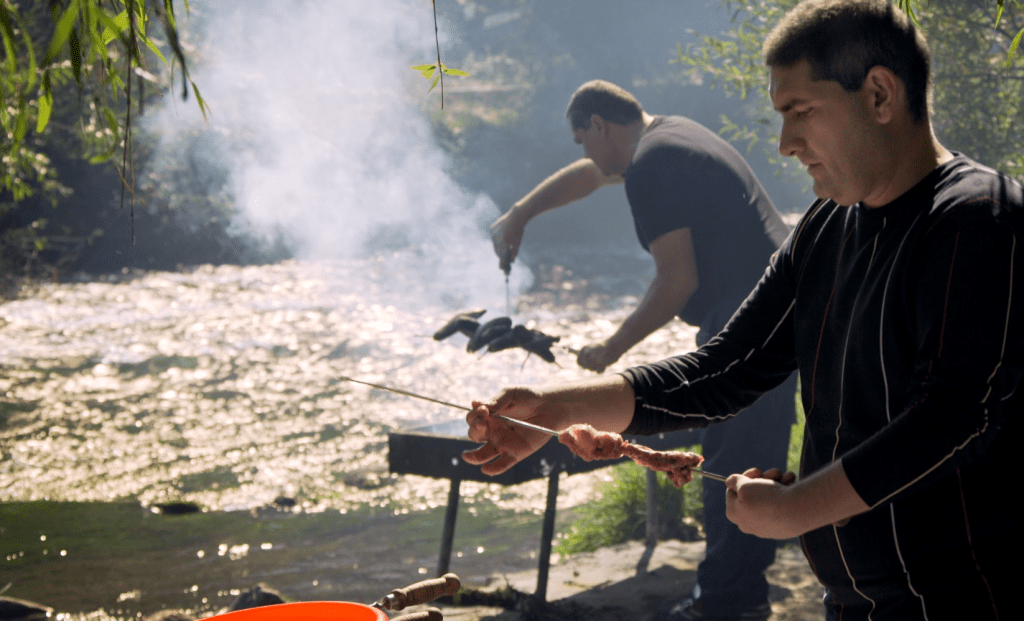
Khorovats in Armenia
Editor's Note: Find the video Rose mentions here. Levon is pictured in the featured image of the article, with Matthew and Rose.
For our Texas audience, and our Austinites specifically, there is a cult-like following of Franklin Barbecue. Was it an obvious choice for the two of you to move deeper in the Hill Country outside of Austin for the Texas locations?
MS: With all countries, we let our subjects develop through a very organic process.
In Texas, we found ourselves being led to many of the older establishments in smaller towns. In addition to legendary places like Louie Mueller and Black's, we also went outside of Central Texas to Prine's in the north, and Patillo's in the south - two very small and very old continuously run barbecue joints.
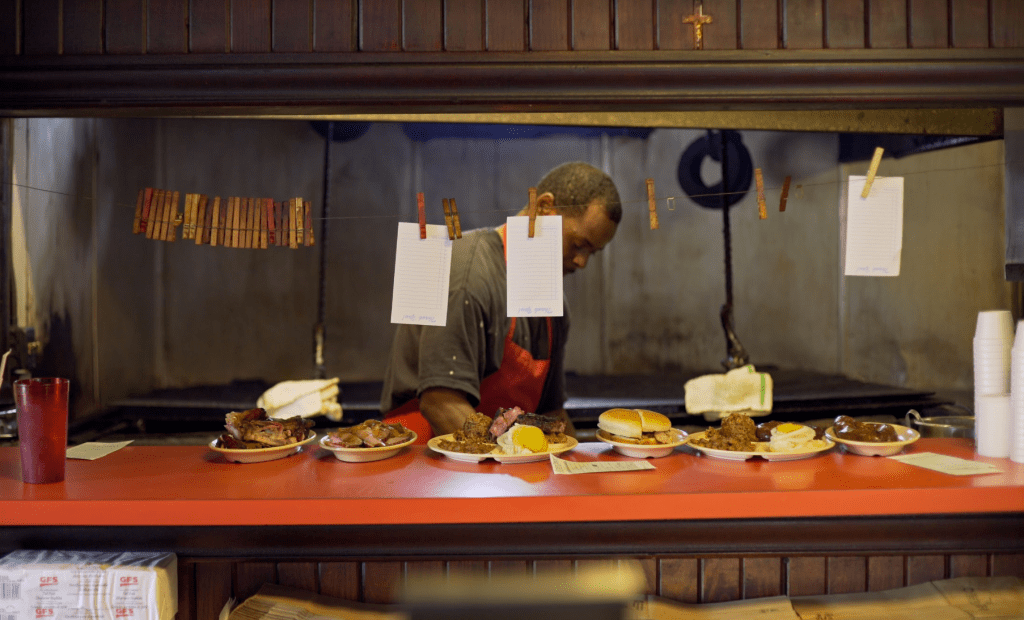
Texas Barbecue
There are so many great joints in Texas, and we know there'll be long discussions about which joints we chose and which we didn't visit - and to be honest we could have easily made a feature length documentary on the 100 miles directly around Austin!
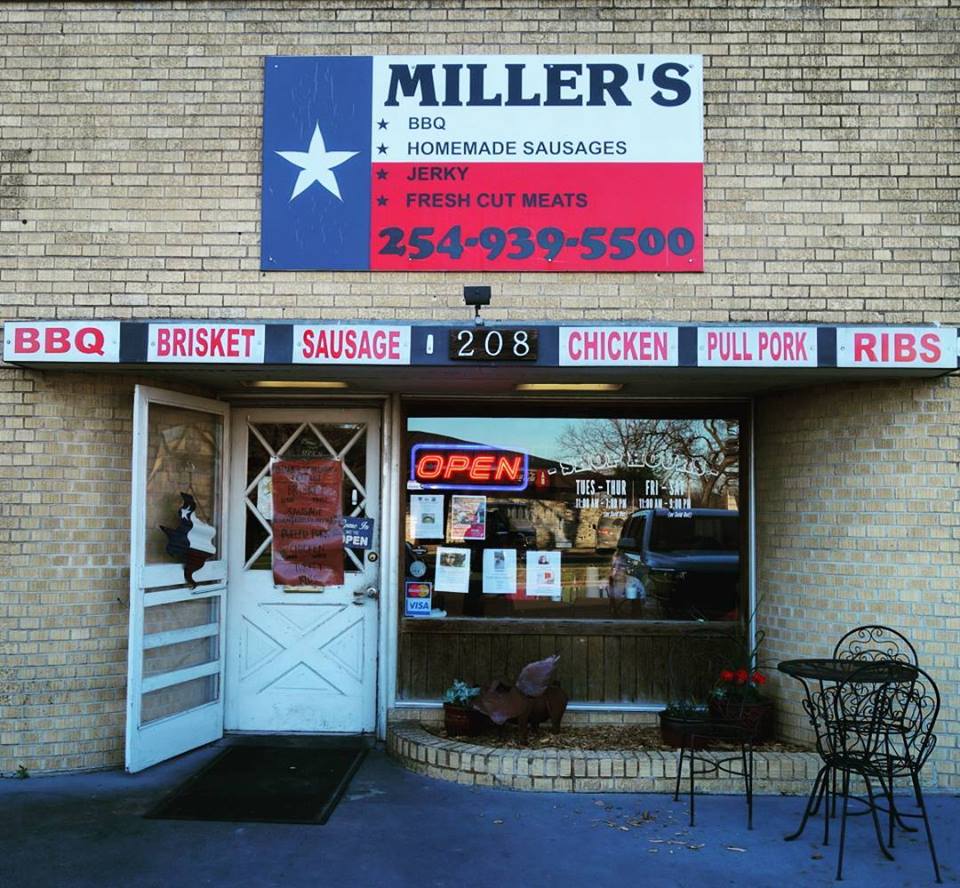
Facebook: Barbecue // Miller's Smokehouse in Belton, Texas
Can you speak a bit about the process of filming and traveling the world in service of the story as a two-person crew? Additionally, could you speak to selecting a local, trusted translator?
MS: Luckily, Rosie and I have had quite a bit of experience traveling and filming as a two person crew. We had made several short documentaries prior to 'Barbecue' that allowed us to hone our filmmaking style, as well as gain experience dealing with the logistical challenges of filming abroad.
For 'Barbecue', we filmed for over 200 days, and logged more than 75,000 miles chasing barbecue stories. I shot the film, and Rosie recorded the sound. This was incredibly challenging as a crew of two, but also allowed more flexibility and greater intimacy with our subjects.
We had a very small footprint, using small cameras and natural light. We weren't some leviathan of a crew. It was just the two of us and a guide in the field, backed by our producer Daniel Joyce and some assistant editors back home. We also had our composer Chris Larkin and sound mixer Michael Darren and an assistant for each. That was basically it.
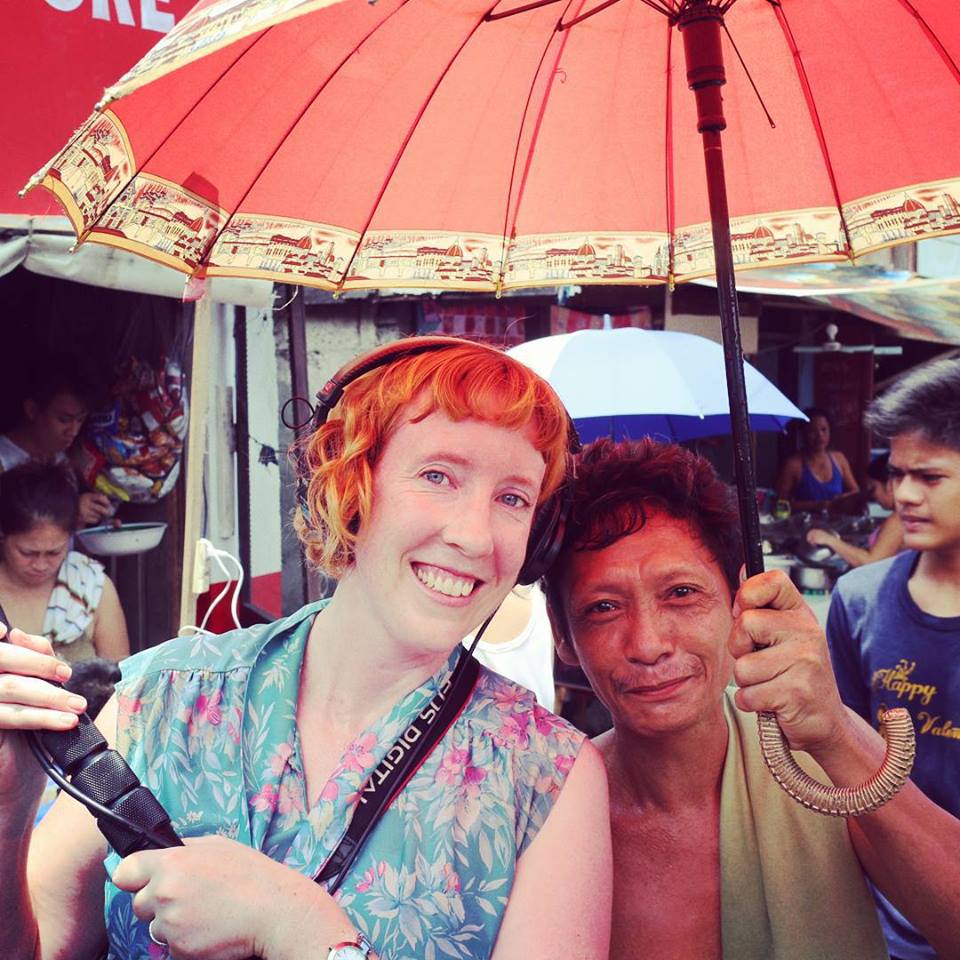
Facebook: Barbecue // Rose in the Philippines with a kind stranger shielding her from the sun
RT: Finding a local translator was also incredibly important. Portrait interviews are a feature of the film, so a good translator, with the right energy and sensitivity, is so important to putting our subjects at ease, and making the interviews flow smoothly.
We found our translators through a number of means - some were professional film fixers, others were simply friends of friends that were interested in helping us out. We found that the best translators were people that were proud of their community and culture - whether they had film experience or not.
In The Philippines, our translator Rhea had never worked as a translator before, but the fact that she lived in the small community we were filming in, knew everybody, and was proud of her culture, meant that with her on our side, we were able to gain the trust of that community.
MS: Yes, often hiring 'film professionals' is not always the solution. In the Za'atari refugee camp, we worked with refugees in the camp who taught English to children. They were a part of a very tight-knit community and understandably wary of outsiders. They wanted to tell the world of their plight and we wanted to do it in a truthful and honest way. The translators were that bridge.
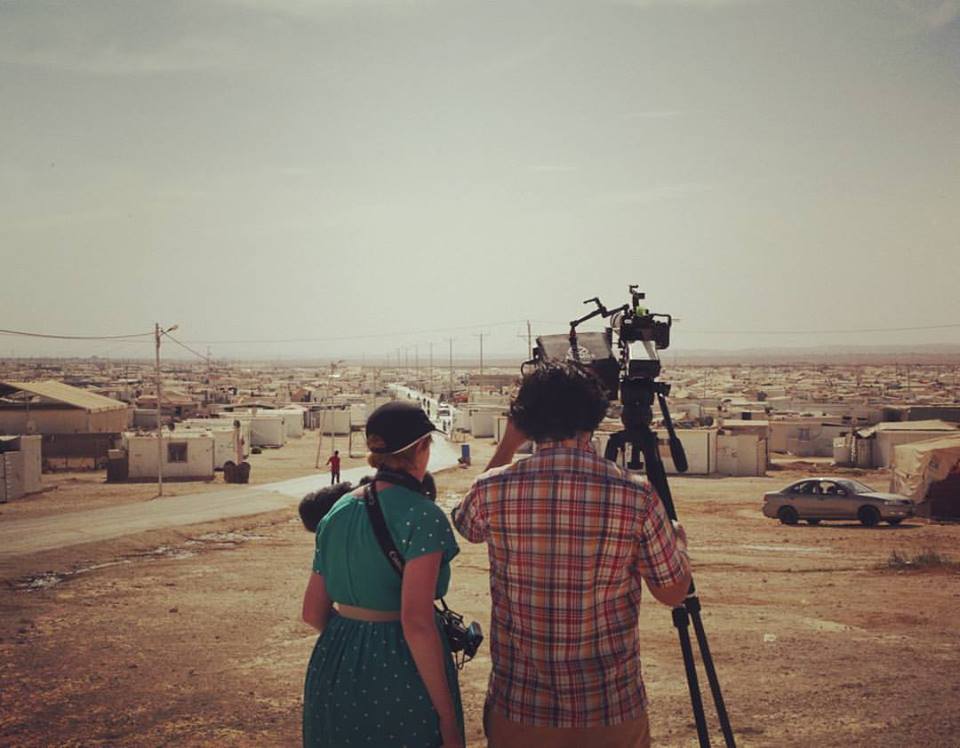
Facebook: Barbecue // Matthew and Rose in Za'atari, the largest Syrian refugee camp in the world
With that in mind, could you also touch on how it felt to intimately connect with the community before diving in? As a writer, it's so commendable to me that you both let the communities open to you - how did you know when you found that access point and when it was time to start filming?
MS: The challenge was between balancing limited time in each country (perhaps only 2 weeks, sometimes less) with a need to meet and understand people before the cameras are pulled out. I try to never film on the first day.
RT: Food is a remarkably easy way to start the conversation. In nearly every place we visited, our introduction to our subjects was over a meal and a drink. We found that if we showed an interest and enjoyment of their culture, then people would be very willing to open up and tell us more.
In Armenia, we filmed with three different families. Our first introductions were always over delicious Armenian fruits, breads and of course cognac! In Mongolia, we got to know the family we filmed with over a long night of vodka shots. The hangover was certainly worth it for the bonds that were formed.
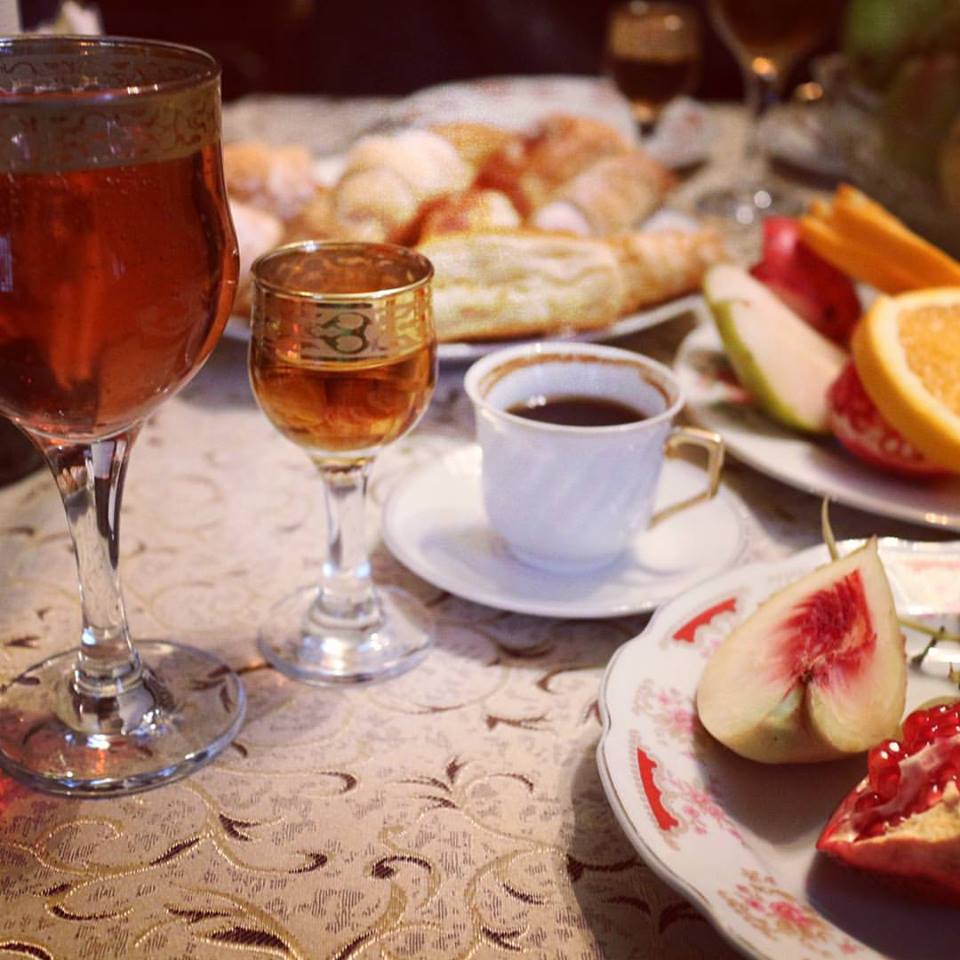
Facebook: Barbecue // Armenian hospitality
MS: It's always good to have a plan, but know that your plan is by no means certain. Simply finding our subjects was part of the journey. We would often meet with someone, who would mention a brother who did barbecue.
We'd meet them, and their best friend would be with them. We'd then go and meet with that person's family, and perhaps an uncle would be the person we'd film with. It's like that T.S. Eliot quote - to arrive where we started and know the place for the first time. That was the experience of this film.
Was there one location that you each felt particularly drawn to? Whether it be Australia or beyond, what was it about the environment or the atmosphere that drew you in?
RT: As an Australian, it's pretty hard to beat the feeling of eating a 'snag' in bread on a hot summer's day, out the front of the pub with a beer in hand. That said, we had a lot of wonderful experiences on this film.
Drinking a shot of vodka with the first hot, salty bite of khorovats in Levon's backyard in Yerevan. Watching the Springboks lose to Japan in the Rugby World Cup whilst eating braai with Wimpie in Johannesburg. Sleeping in the wharenui at Te Koraha Marae in New Zealand with a room full of snoring Māori men (the 'snorechestra').
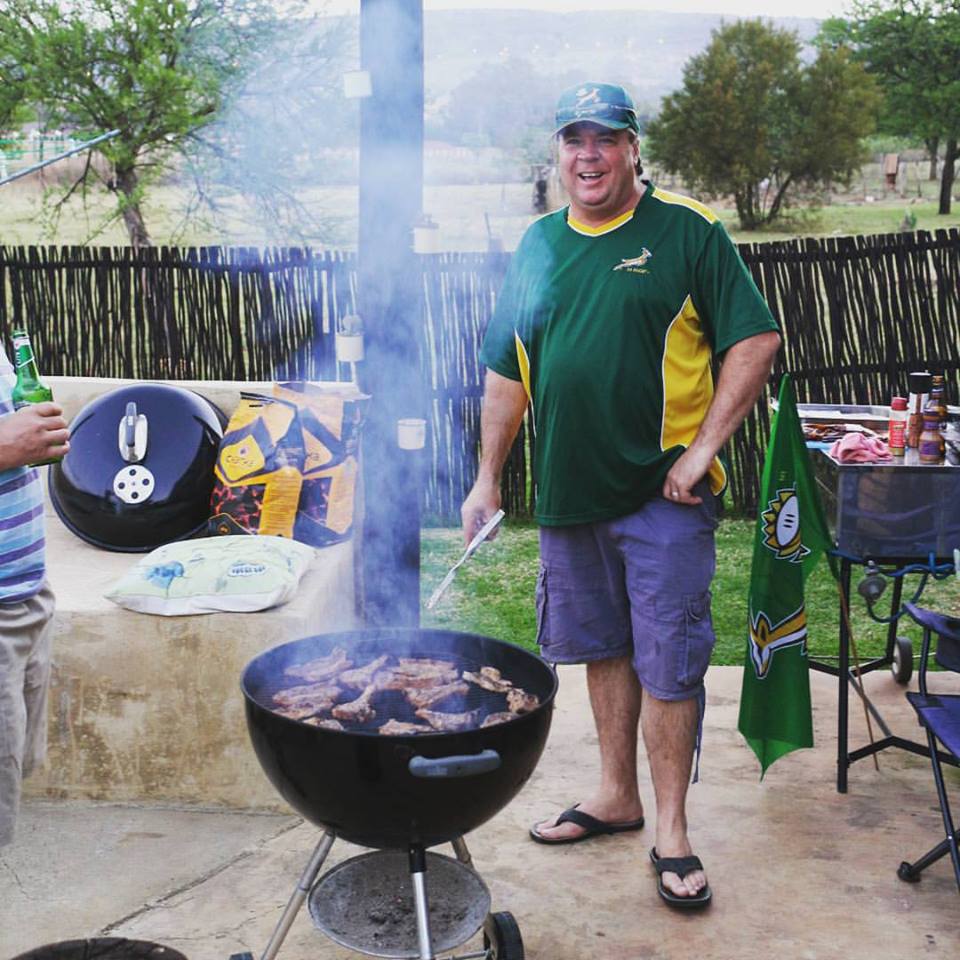
Facebook: Barbecue // Braaing with Wimpie in South Africa
Everywhere we went, we were welcomed wholeheartedly. I feel like we have families all around the world!
MS: It's like picking a favorite child. It's hard to pick favorites, and like Rosie said, we feel we're now part of communities around the world. Rosie and I have recently moved to the US, so the Australian story definitely makes me homesick. I look forward to returning.
Was there one experience in particular, for each of you, that stands out as the moment where the project started to take on weight, beyond the planning and the initial stages of drafting?
MS: That's a good question. This film took us to corners of the world for long periods of time. I don't think I had a regular night's sleep for 9 months. When you're out in the field, all you could focus on was the task right in front of you with tunnel vision. I would try and create a visual and narrative continuity between countries, but you could never be quite sure what you had 'in the can', and how it would all come together.
It was in the edit, where in a single beat we moved from the outback of Australia to a forest in Japan, or from a river in Armenia to the Jordan/Syrian border, that I really started grappling with the scope of the film.
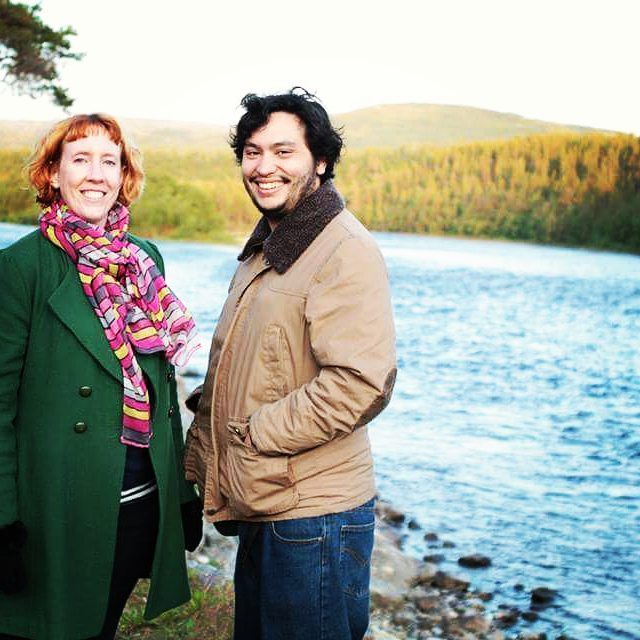
Facebook: Barbecue // Matthew and Rose with Norway's midnight sun
I also remember sitting in a studio in Adelaide, Australia, whilst a 60 piece orchestra in Budapest was scoring the film 9000 miles away. The contrast between Rosie and I sitting cold on top of a hill in the morning, waiting hours for the right shot, and a giant orchestra playing the music our composer Chris Larkin wrote to accompany that moment - the weight of it all definitely sunk in.
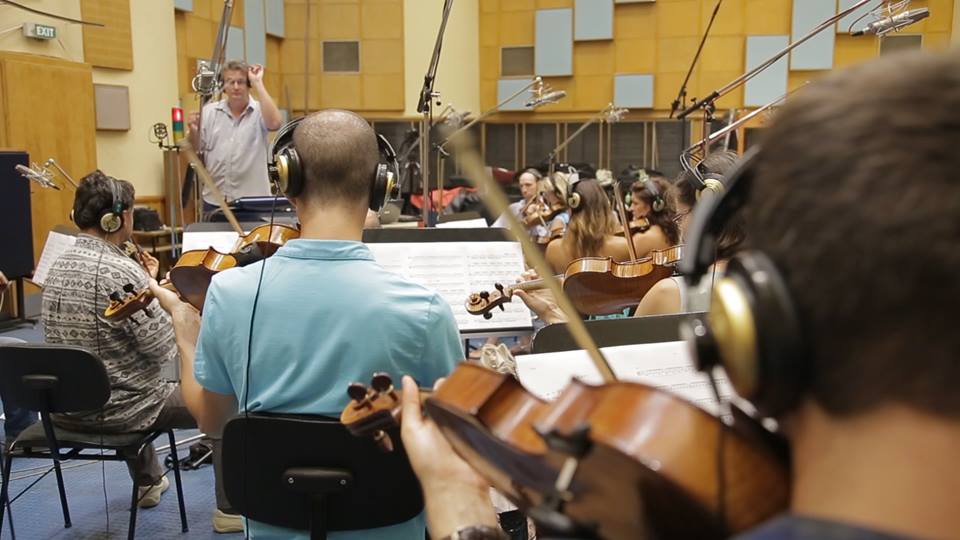
Facebook: Barbecue // A snippet of the orchestra
What did you find in Texas that felt universal to the other pits in the world?
MS: An overwhelming pride and passion for hard work, and a deep understanding of community and culture.
In the press notes, there are six women featured. I'm excited to see their stories on-screen and without giving much away beforehand, can either of you speak to the presence of women in the film?
RT: There is no doubting that globally, barbecue is predominantly a male domain. We wanted to capture that reality. That said, we were very excited to find several strong female barbecue figures on our journey.
In Mexico, Guillermina runs the family barbacoa business, working tirelessly throughout the night to bring their goat barbacoa to the morning market.
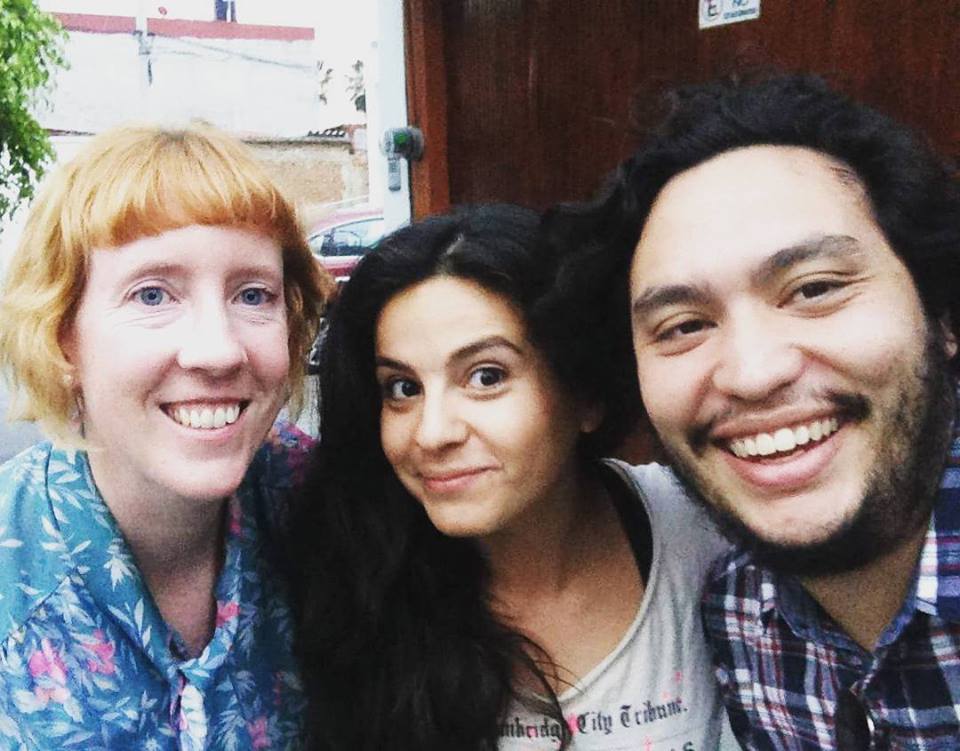
Facebook: Barbecue // Rose and Matthew with María Ítaka, Oaxaca fixer and translator
In Texas, there is a very strong female presence in the barbecue world - women like Norma Jean Black, of Black's Barbecue, who with her husband Edgar Jr, were one of the first in Lockhart to desegregate their restaurant, and Ms Tootsie, pitmaster at Snow's BBQ, who at over 80 years of age is still stoking the fires and tending to her meat.
And finally, I have to ask both of you. Favorite Texas BBQ joint? If that's too hard, how about your favorite Texas smoked meat?
MS: Favorite joint? No comment - wars have been started over less. As for favorite smoked meat, it's brisket all the way.
In Australia, there's been an 'American BBQ' craze taking over the last few years, but that one thing they just can't get right is the brisket. You have to go to Texas to get the real deal.
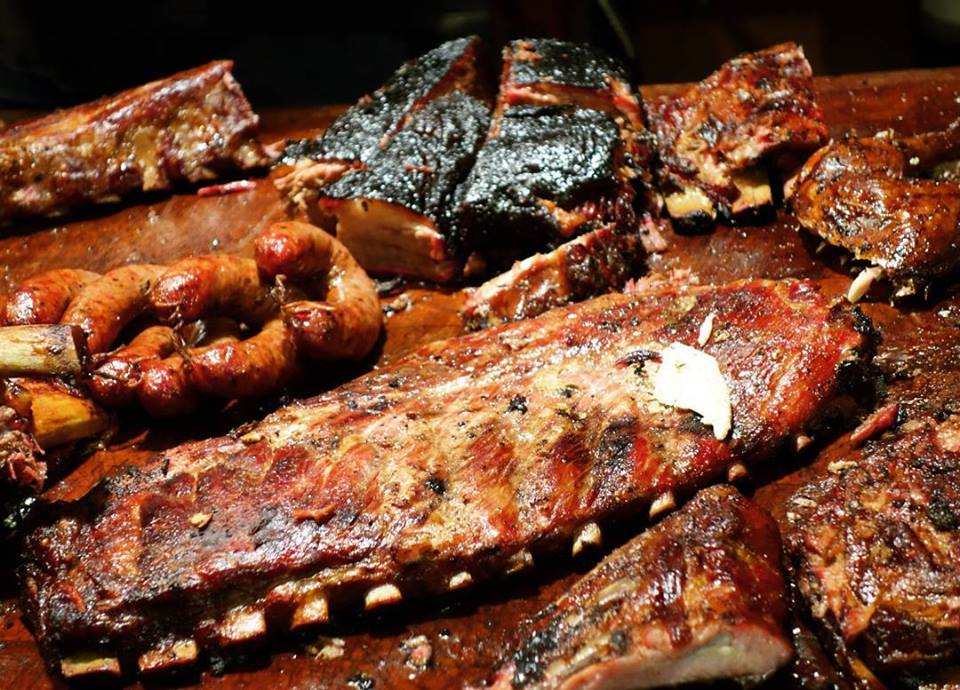
Facebook: Barbecue // The spread at Black's BBQ
RT: That's such a hard question! I love something different about all the places we filmed in. You can't beat the step-back-in-time feeling of Smitty's Market, the welcoming family-run feel of Black's, the awesome location and massive beef ribs at Louie Mueller, the simple deliciousness of Prine's, the beef links at Patillo's, and of course there's nothing like a trip out to Snow's on a Saturday morning for some of Ms Tootsie's handiwork.
Then there are newer joints like Stiles Switch, who are smashing it out of the park, and Miller's Smokehouse - who do the best burnt ends, not to mention Momma Miller's deliciously naughty pies!
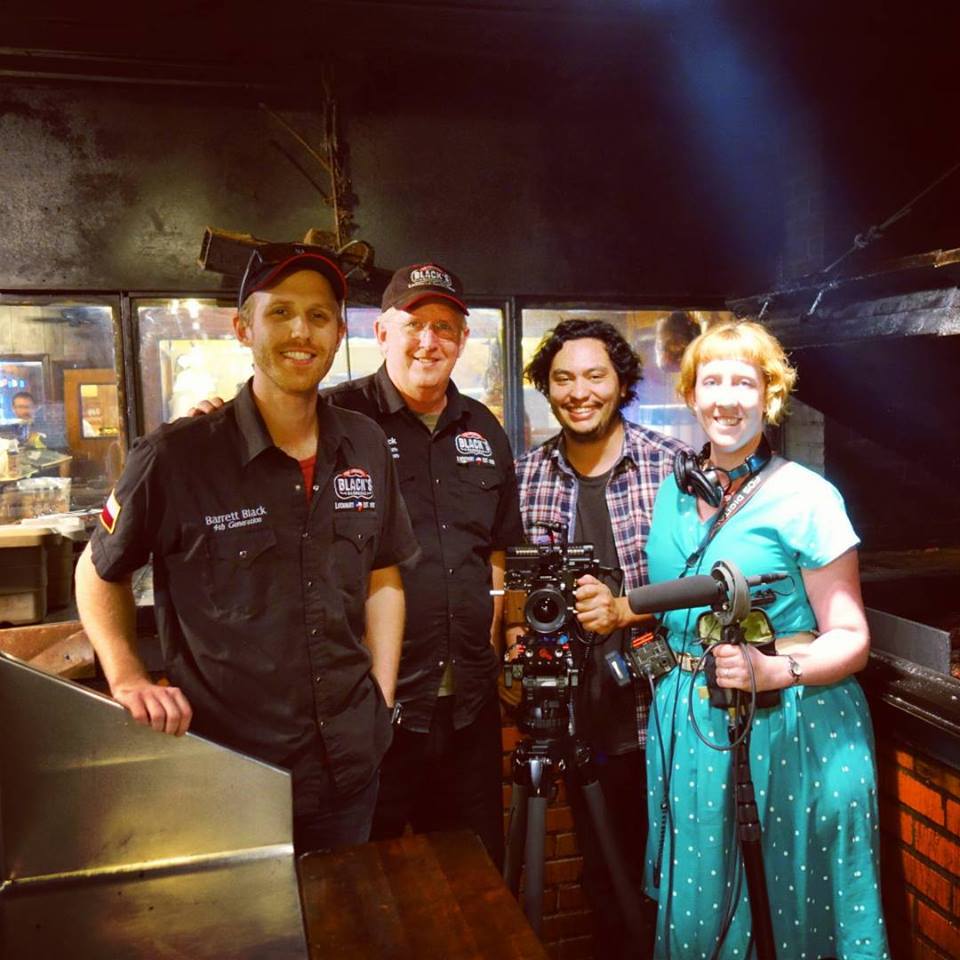
Facebook: Barbecue // Rose and Matthew with Barrett and Kent Black of Black's BBQ
It was an honor to interview both Matthew Salleh and Rose Tucker in light of their documentary, Barbecue, premiering at SXSW in Austin, Texas. I'll be reviewing the documentary following its showing and if this interview is any indication, I'll need to make a trip to my favorite local barbecue spot ASAP!
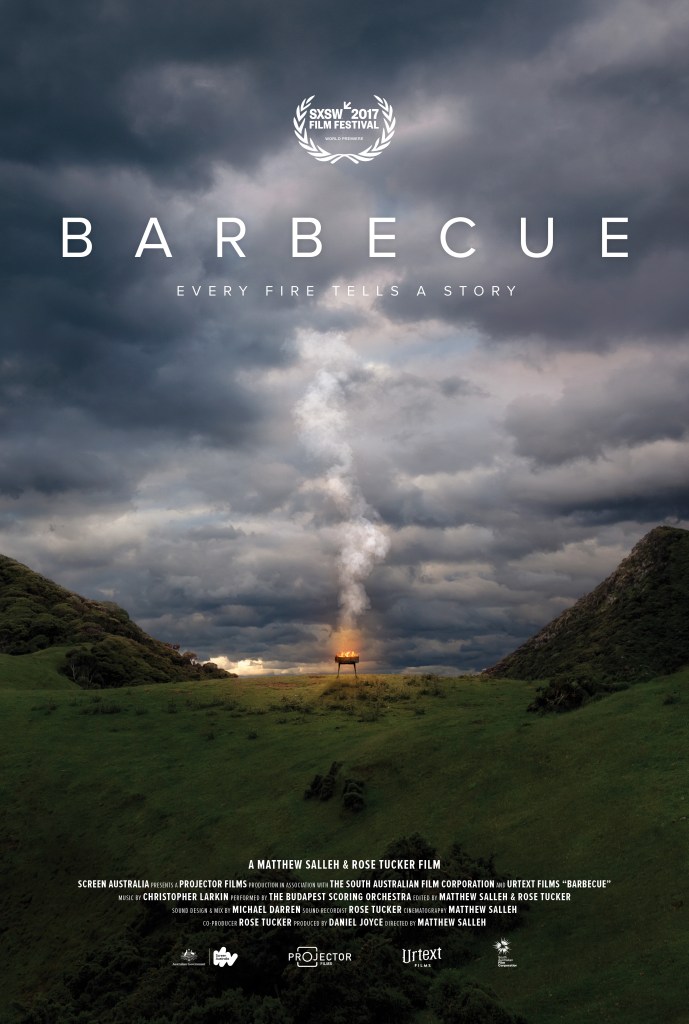
Be sure to follow along and spread the word about Barbecue on social media! If there's one thing to take away from this project, barbecue is about community and each one is uniquely compelling and delicious.
